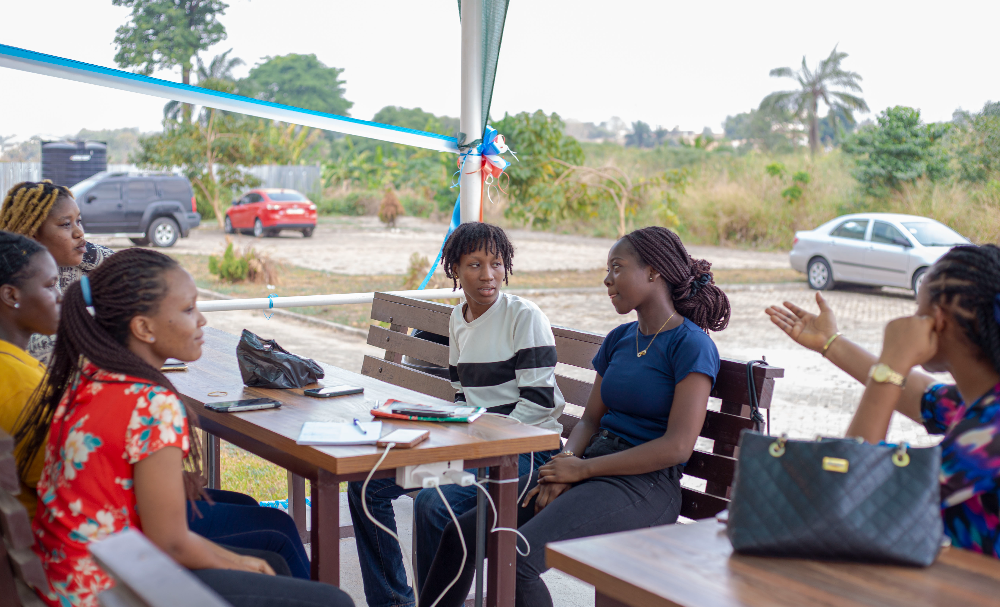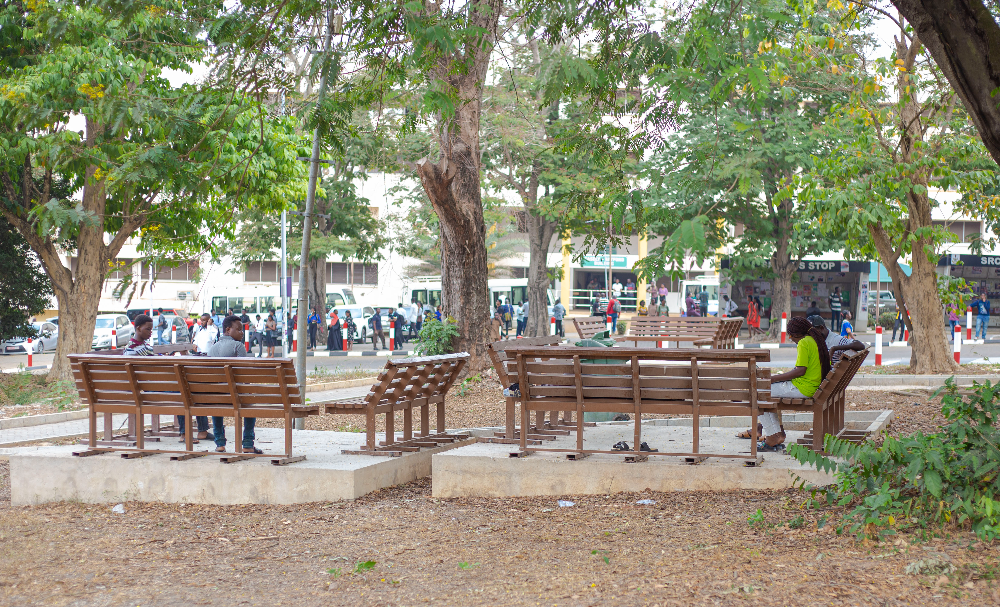The Kwame Nkrumah University of Science and Technology (KNUST) is thoughtfully creating inclusive seating areas that cater to every student. These spaces, designed to make all students feel welcomed and valued, go beyond simply adding more benches.
One such area, located adjacent to the Caseley Hayford Building, offers a mix of benches, shaded spots, and informal seating to meet diverse needs. Whether students seek a quiet corner to focus, a comfortable space to relax, or an inviting spot to socialize, these areas provide an escape from campus bustle while encouraging interaction.
Mr. Felix Kofi Adusei, the 2024 GRASAG President at KNUST, initiated this project. He observed that weekend stream graduate students struggled to find suitable study spaces during breaks, highlighting the need for more comfortable and conducive learning environments.

Students now have several comfortable options for rest and social interaction. Kelvin, a second-year Biochemistry student, explains, "This space is useful, especially when you're on campus with some free time and no class to attend. Having a place to relax is essential."
These strategically placed areas around campus encourage interaction between students from different faculties and disciplines. They become communal spaces where students can exchange ideas, collaborate on projects, or simply enjoy casual conversations.

Franca, a first-year Business Administration student, appreciates the new seating areas.
"This is the first time I've come across this spot, and it's helpful. My group members and I always struggled to find a place to sit," she shared.
Beyond the main campus, the College of Health Sciences and the 2023/24 HESA executives commissioned a study area for students at the Medical Village. Mr. Bernard Bosoma Yeboah, the 2023/24 HESA President, advocated for this project, emphasizing the need for conducive study spaces to accommodate the growing student population.

Joyce, a second-year BSc Disability and Rehabilitation Studies student, and her coursemate expressed their appreciation for the new study area after its commissioning.
The success of these initiatives reflects the university's evolving vision, recognizing the importance of mental well-being and social connections in the student experience.
Professor Christian Agyare, Provost of the College of Health Sciences, acknowledged the initiative's significance and recommended constructing two additional discussion areas to address the growing demand for study spaces.
As more areas are developed, KNUST plans to integrate Wi-Fi hotspots and power outlets, making these spots even more student-friendly.
Mr. Adusei added, "Looking ahead, these seating areas will significantly contribute to our efforts as student leaders to create a more conducive and supportive environment for higher education."
| Story by Edith Asravor (URO) | Photos by Emmanuel Offei (URO) |

















